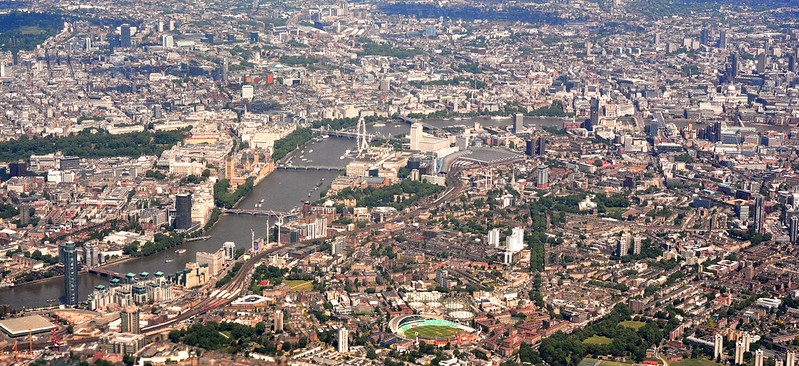Open City
Key contacts: Professor John Solomos
Funding: ESRC
Start date: December 2020
End date: November 2023
Project overview
The three-year project, funded by the ESRC, will look at the social and political life of the city to test whether the utopian ideal of the Open City exists in real life, and explore issues of race, migration, mobility and living with diversity. Using London as its case study, it will explore how the city accommodates new forms of urban life, through the social configuration of its spaces and places, and look at the ways urban government at the city-wide and borough scales reflect, promote or limit the idea of the Open City.
Project aims
The concept of the Open City has been developed by architects, planners and theorists to describe a place of social integration, cultural diversity and collective identity, where different cultures and lifestyles co-exist and interaction leads to enrichment. It contrasts with urban spaces where commercial malls, gated communities and poor transport networks drive increased fragmentation and new diversities are characterised by dynamics of intolerance and antagonism.
The project will investigate the assumption that the open city is the good city, or not, by examining the real lived experienced of the open and closed dimensions of city life.
Project objectives
Research will focus on London, a metropolis where simultaneous processes of migration, gentrification and displacement generate neighbourhoods of flux and churn. Within London, the borough of Camden is focused upon due to its distinctive geography, the mixture of communities and housing, the role of the local council and community groups and its population churn.
The project will explore the dynamics of London life at the city wide, borough and street / tower block level. At each of these three levels, there will be four main strands of research:
- To recover and analyse the evidence surrounding the different histories of welcoming around ethnic, racial and migratory politics in London.
- To create data sets for population churn at various scales within London, but especially at the estate and neighbourhood scales, to understand the dynamics of dwelling in the city.
- To test the concept of the open city by soliciting data about the open and closed aspects of city life. Data will be gathered that explores the ways that people's geographical relationships influence, or not, their experiences of city life.
- To conceptualise how practices and policies of urban government at the city-wide and borough scales reflect, promote or circumscribe the idea of the open city through research on the associational politics of race and migration.
Research outcomes
The project will work with key stakeholders in London and elsewhere to ensure that the main findings of the research will feed into policy and political debates about cities and urban life. It will engage with the Migration Museum and Counterpoint Arts to develop accessible and stimulating new cartographies of the city.
Research team
Professor John Solomos: Professor of Sociology, University of Warwick. Lead Principal Investigator focusing on the theme of ‘welcoming others’. Testing what the drivers are that have made the city more ‘closed’ and ‘open’ by unearthing new and established social histories of the city as a space of arrival, sanctuary, solidarity and mobilisation.
Professor Michael Keith: COMPAS, Oxford University. Co-Investigator focusing on dwelling making. Testing co-existence in the contemporary city; addressing contemporary issues around housing in the narrow sense but also the ethics of hospitality and co-existence at different urban scales.
Professor Karim Murji: Social Policy and Criminology, University of West London: Co-Investigator focusing on ‘claiming the city’. Testing the role of activisms and governance that carry an appeal to ‘openness’; examining political mobilisations and the range of activisms in response to populist exclusionary movements from anti-racist and migrant solidarity organisations.
Professor Steve Pile: Geography, The Open University. Co-Investigator focusing on ‘living with openness’. Testing the forms of multiculture that have in the past and might in the future sustain an open city.
Eda Yazici: Research Assistant, University of Warwick. My previous research focused on everyday practices of belonging among people who have been made to move in the asylum system. I am interested in how people relate to the city, build relationships and move through cities over time.
Susannah Cramer-Greenbaum: Susannah is a Research Fellow on the Open City project working with Professor John Solomos (PI, University of Warwick), Professor Michael Keith (Co-I, University of Oxford), Professor Karim Co-I University of West London) and Professor Steve Pile (Co-I, Open University). She recently completed her doctorate at ETH Zurich in the Institute for Technology and Architecture, where her research on the effects of new housing construction on neighbourhood change has been nominated for the ETH Medal. Susannah is also a US licensed architect. She has experience leading participatory planning and design projects locally and internationally, from charter schools in Massachusetts to a community hospital network in Papua New Guinea. She holds a BA in architecture history from Princeton University, and a Masters of Architecture from the University of Michigan.
Photo: Central London by flickr user Mike McBey, used under creative commons

